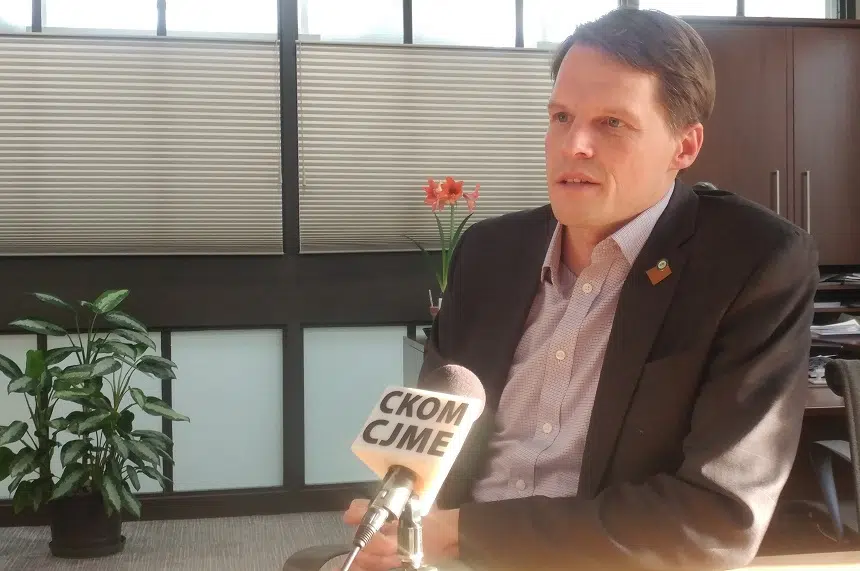He’s no longer the new kid on the block.
In a year-end interview with 650 CKOM, Saskatoon Mayor Charlie Clark reflected on how 2017 tested the city’s new council.
“It’s a good mix of old and new to try a different leadership model for this city,” he said. “It’s been a real exciting time to be mayor of Saskatoon.”
Clark was busy from the onset of 2017, when the provincial government announced it would completely eliminate the grants-in-lieu program with municipalities.
While Clark joined other Saskatchewan leaders in a push back to the decision, the cut remained for Saskatoon and Regina – amounting to an unexpected shortfall of $11.4 million.
Provincial revenue sharing also slid, as revenues were slated to be lower in 2017 despite an increased and expanded PST.
The timing also sparked debate on the city’s partnership with the University of Saskatchewan’s Home Ice Campaign.
After a debate lasting more than three hours, council voted 6-5 in favour of a motion to spend $3 million over six years on Merlis Belsher Place. The money was in addition to an already agreed-upon contribution of $1-million in 2016.
“When they came back and asked for additional funds, it’s because their project had expanded,” Clark explained.
“The main arena they were building had gone up to a 3,600-seat facility that can attract national and international competitions to our city.”
Clark noted that ice space was one of the largest holes in the city’s recreational plans, adding the funding amounts to “10 cents on the dollar” for what Saskatoon is getting in return – considerable access to the $41-million multiplex without swallowing operating costs.
“Even though we’re facing these tight budgetary situations, you still want to (make) smart investments.”
While Clark could consider it a win, he told 650 CKOM it was only one of many decisions in 2017 focused on the bigger picture.
He pointed to the city’s emphasis on partnerships including work with Saskatoon Tribal Council on a $62-million hydropower project at The Weir.
“None of them are at an endpoint, they’re the important city-building issues that are in process in Saskatoon,” Clark said.
In November, council confirmed people in Saskatoon would see a 4.7 percentage point hike – around $82 more for the average family – on property tax to make up the shortfall.
Clark said the decision was made to limit many services and therefore, jobs were cut.
“We hear from people they value the services, whether it’s snow clearing, street sweeping programs, looking after parks,” he said, adding the city was initially looking at a seven-point bump.
On the personal front, Saskatoon’s new mayor – a former city councillor – admits the role comes with its lifestyle changes.
“It’s a bit of an adjustment just to realize that everywhere you go, people – whether they talk to you or not – they know you’re there,” he said. “(My) kids have been tremendously resilient dealing with it.”
Clark was quick to point out the people of Saskatoon have been very kind at all events where he’s been present – which amounted to more than 400 in 2017.
The mayor was notably the first in the city’s history to attend the Saskatoon Pride Parade and took it one step further by being the 2017 grand marshal.
“It helps to send the message we’re a modern, progressive city where people are welcome.”
Clark said he was also encouraged by the city’s work on reconciliation efforts in the first year of a new council.
650 CKOM will publish a look ahead with Saskatoon Mayor Charlie Clark on Jan. 3, 2018.
– With files from 650 CKOM’s Chris Vandenbreekel.











